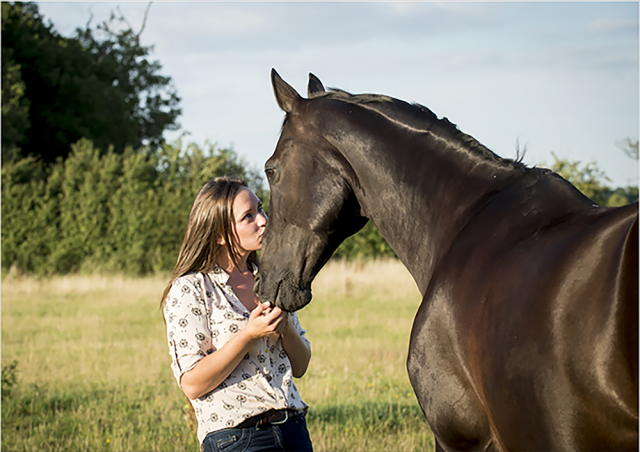
SPILLERS?reveals Most Frequent Winter Care-Line Queries
The SPILLERS® Care-Line is invariably at its hottest during the winter months. Clare Barfoot RNutr, the Research and Development Manager at SPILLERS®, reveals some of the most frequently asked questions and provides the answers, to help you keep your horse in fine fettle this winter.
SPILLERS® led the way with the introduction of a horse nutrition Care-Line back in the 1980s. Now supported by four nutritionists, the free service gives inquisitive, worried, or confused horse owners access to friendly, non-judgemental and unbiased nutrition advice. Thousands of calls and emails are handled by the Care-Line annually and this number is increasing year on year. Nutritionist recommendations via the Care-Line are automatically uploaded onto your very own My SPILLERS® Record to help guide your horse’s diet plan with efficiency and accuracy.
“During the winter months our phone line and inbox are usually red hot with questions from caring horse owners who need some advice,” says Clare. “Questions range from very standard to occasionally slightly off the wall – once someone asked if she could feed her horse the contents of her compost bin! Obviously the answer was an emphatic ‘no’!”
Here are the top five questions asked so far this winter:
How can I keep weight on my horse?
First it’s important to eliminate any clinical reasons for weight loss. Next check that the quality of your forage is good and make sure that it is always fed ad lib – even in the field. It is also worth making sure your horse is well rugged as significant calories can be used just to keep the body warm. In terms of your horse’s bucket feed you should be feeding the recommended quantity, in meals of no more than 2kg so as to not overload the stomach. If your horse is still not maintaining weight increase the calorie density of the meals. Try a conditioning feed or if he has a sharp temperament opt for a fibre and oil based medium energy feed; these types of feed may not say ‘conditioning’ and may be packaged as competition feeds, nonetheless they will be medium energy and will help build condition.
How should I feed my laminitic during the winter?
Obesity and diet are two key laminitis risk factors that are under your control. As grass is the largest contributor of water-soluble carbohydrate (sugars and fructans) it is important that it is restricted, even in the winter. Choose feeds that are high in fibre and low in sugar and starch. If your horse is a good doer or needs to lose weight consider feeding a balancer designed to complement a calorie restricted diet. If he requires more condition opt for a high fibre feed suitable for horse and ponies prone to laminitis. It’s useful to have the nutritional value of your hay analysed and to soak it before feeding to reduce the water-soluble carbohydrate (WSC) content.
What’s the right way to feed a hay replacer?
Firstly choose an appropriate product - this means one that is suitable to replace forage from a nutritional point of view such as chopped fibres or high fibre cubes. Partial replacers include grass nuts, alfalfa nuts and sugar beet. In terms of amount if your horse can’t eat any forage or grass you will need to feed at least 15g/kg bodyweight (dry matter) a day, however unless overweight most horses will require around 20g/kg bodyweight (dry matter). This equates to approx. 10kg of feed per day. Ideally this should be spread across the day in at least four meals.
How do I measure horse feed?
Most owners feed by the scoop but with all the different types of feed available one scoop can weigh considerably more or less than another. This is why it is really important to weigh your feed, even if you only do so once. The easiest way is to put one scoop of your chosen feed in a carrier bag and weigh it on your kitchen scales. Then all you need to work out is how many scoops you need to feed per day.
What’s the best way to give my horse vitamins and minerals without weight gain?
It’s important to feed a balanced diet all year round to support your horse’s long- term health and well-being. A diet that is unbalanced or deficient in certain nutrients could start to show with poor hoof or coat quality, a lack of muscle tone or a compromised immune system. If, like many, your horse doesn’t need extra calories in the form of a full ration of compound feed a balancer would be the best solution. These are specifically designed to complement forage or pasture based diets but without unwanted extra calories.
SPILLERS® produces feeds to suit all types, including a range of superior fibres and balancers, Laminitis Trust approved products and new SPILLERS® Alfalfa-Pro which carries the BETA Equine Gastric Ulceration Syndrome (EGUS) Certification Mark. For friendly advice on winter feeding contact the SPILLERS® Care-Line on + 44 (0)1908 226626 or visit www.spillers-feeds.com.
More from Spillers

 9 years ago
9 years ago  1605 views
1605 views